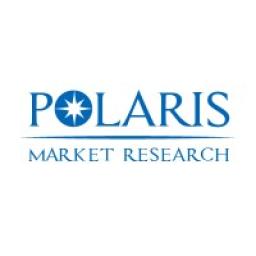

U.S. AI In Oncology Market size and share is currently valued at USD 888.31 million in 2023 and is anticipated to generate an estimated revenue of USD 7,710.88 million by 2032, according to the latest study by Polaris Market Research. Besides, the report notes that the market exhibits a robust 27.1% Compound Annual Growth Rate (CAGR) over the forecasted timeframe, 2024 - 2032
Market Overview
AI's integration into oncology is revolutionizing cancer care by enhancing diagnostic accuracy, personalizing treatment plans, and expediting drug discovery processes. Key applications include early detection of cancers, predictive analytics for treatment responses, and efficient analysis of complex datasets. The software solutions segment currently dominates the market, while services are expected to witness the fastest growth during the forecast period .
Country-Wise Analysis
United States
The U.S. leads the global AI in oncology market, attributed to its advanced healthcare infrastructure and significant investments in research and development. AI algorithms have achieved up to 97% accuracy in lung cancer detection, and approximately 45% of oncology hospitals are integrating AI-powered diagnostic tools . The adoption of AI in radiology has reduced diagnostic times by up to 30%, enhancing patient outcomes.
Canada
Canada is witnessing a steady adoption of AI in oncology, focusing on integrating AI into clinical workflows to improve diagnostic precision and treatment efficacy. Collaborations between research institutions and healthcare providers are fostering innovation, with an emphasis on developing AI models tailored to the Canadian population's genetic diversity.
Germany
Germany's robust healthcare system and emphasis on technological innovation position it as a key player in the AI oncology landscape. The country is investing in AI-driven research to enhance early cancer detection and personalized treatment approaches. Efforts are underway to integrate AI tools into national cancer registries, facilitating comprehensive data analysis for improved patient care.
United Kingdom
The UK is actively incorporating AI into its National Health Service (NHS), aiming to streamline cancer diagnostics and treatment planning. Initiatives focus on deploying AI algorithms for imaging analysis and predictive modeling, with pilot programs demonstrating improved diagnostic accuracy and reduced time to treatment initiation.
France
France is embracing AI in oncology through public-private partnerships, fostering the development of innovative diagnostic tools and treatment algorithms. The country's emphasis on data privacy and ethical AI deployment ensures that technological advancements align with patient rights and regulatory standards.
Japan
Japan's aging population and high cancer incidence rates drive the adoption of AI in oncology. The country is leveraging AI for early detection programs and to optimize treatment regimens. Collaborations between tech companies and healthcare providers are central to Japan's strategy, focusing on integrating AI into existing healthcare systems.
China
China is rapidly expanding its AI capabilities in oncology, supported by substantial government investments and a large patient population. The focus is on developing AI platforms for early cancer screening and personalized medicine. China's approach includes building extensive medical databases to train AI models, enhancing their predictive accuracy.
India
India is exploring AI applications in oncology to address challenges related to healthcare accessibility and resource constraints. Efforts are directed towards developing cost-effective AI tools for early cancer detection and treatment planning, particularly in rural and underserved regions. Collaborations with international organizations are facilitating knowledge exchange and capacity building.
Australia
Australia is integrating AI into oncology to improve diagnostic services and patient management. Research institutions are developing AI algorithms for analyzing medical imaging and pathology data, aiming to enhance early detection rates and treatment outcomes. Government support and funding are pivotal in advancing these initiatives.
South Korea
South Korea is investing in AI-driven oncology solutions, focusing on precision medicine and genomic analysis. The country's technological infrastructure supports the development of advanced AI models for cancer diagnosis and treatment optimization. Collaborations between academia and industry are central to South Korea's strategy in this domain.
The U.S. market features a vibrant ecosystem of established tech companies, medtech innovators, and AI-focused startups. Leading players include:
IBM Watson Health
Known for its Watson for Oncology platform, IBM leverages AI to assist clinicians in making evidence-based treatment decisions. Its collaboration with Memorial Sloan Kettering Cancer Center highlights its continued commitment to AI in cancer care.
Tempus
A Chicago-based precision medicine company, Tempus combines genomic sequencing with AI to guide targeted cancer therapies and clinical trial matching.
PathAI
Specializing in pathology diagnostics, PathAI uses deep learning to improve cancer diagnosis accuracy and efficiency in histopathology.
Freenome
Focused on early cancer detection, Freenome uses AI-powered blood tests to detect cancer-related biomarkers before symptoms appear.
Google Health (DeepMind)
Google has developed AI models for breast cancer detection that outperform radiologists in some studies. Their AI is also used for lung cancer screening and pathology analysis.
NantHealth
Known for its Eviti platform, NantHealth leverages AI and real-world evidence to support decision-making in oncology treatments.
Arterys
A pioneer in medical imaging AI, Arterys provides cloud-based radiology platforms for identifying and quantifying tumors in lung and liver cancers.
CureMetrix
Offers AI-powered mammography solutions to improve breast cancer detection rates and reduce false positives.
https://www.polarismarketresearch.com/industry-analysis/us-ai-in-oncology-market
Conclusion
The global U.S. AI In Oncology Market is poised for significant growth, with the U.S. at the forefront of innovation and adoption. Advancements in AI technologies are transforming cancer care by enabling earlier diagnoses, personalized treatments, and more efficient healthcare delivery. As countries continue to invest in AI infrastructure and research, the potential for improved patient outcomes and streamlined oncology services becomes increasingly attainable.
Internet Of Things (Iot) In Healthcare Market
Specialty Generic Drugs Market
Transcatheter Aortic Valve Replacement (Tavr) Market
Gaucher Disease Treatment Market
Peripheral Vascular Device Market
Transcatheter Aortic Valve Replacement (TAVR) Market
North America SGLT2 Inhibitors Market
| No comments yet. Be the first. |